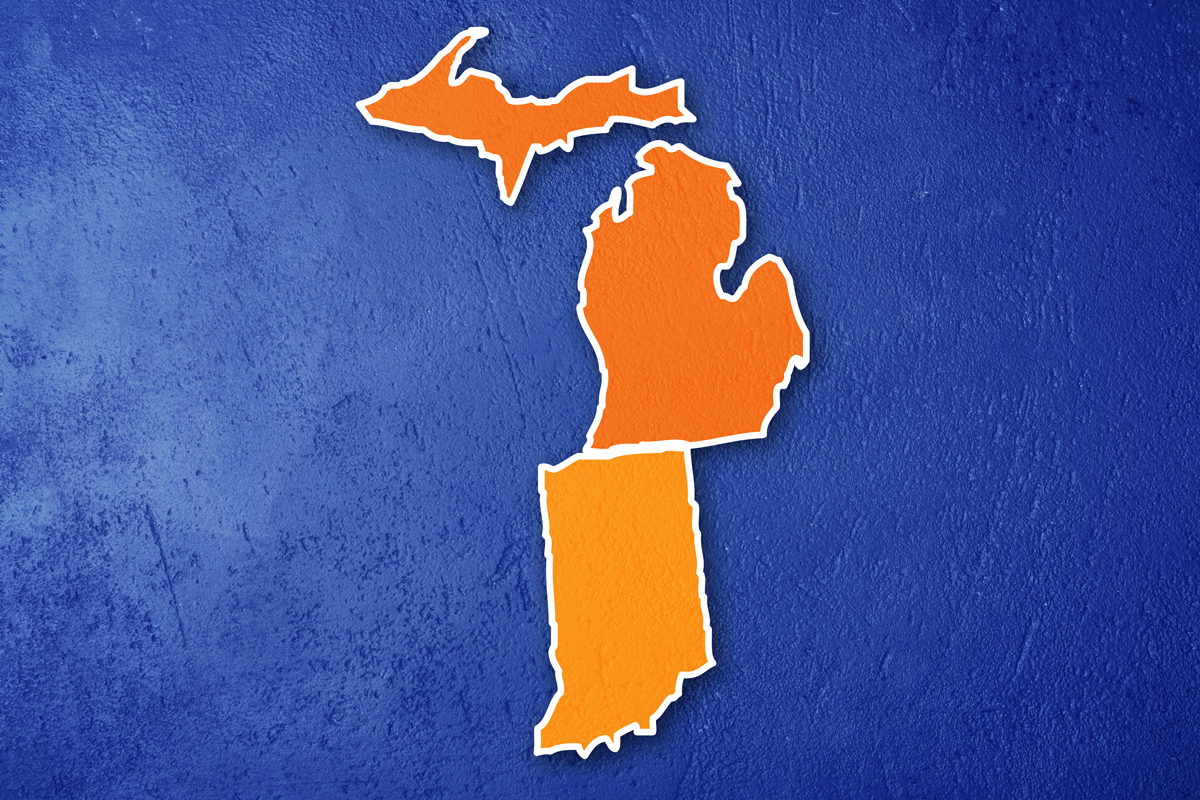2022 Michigan and Indiana Labor & Employment Year End Review

Indianapolis, Ind. (January 11, 2023) – 2022 was an exciting year for labor and employment law in the state of Michigan. The minimum wage was increased, but a key court ruling cleared the way for possible significant further expansion of the state’s minimum wage and sick leave laws. Conversely, it was a quiet year for Michigan’s neighbor, Indiana, when it came to developments in labor and employment law. Following 2021, which saw Indiana implement several important changes to labor and employment law, the Hoosier State only brought one significant change in 2022 – a limit on employer COVID-19 vaccination mandates.
Michigan Labor & Employment Law Updates
Minimum Wage Increase
On January 1, 2023, Michigan’s minimum wage increased to $10.10 per hour from $9.87 per hour. The minimum wage for tipped employees also increased, to $3.84 per hour and, for employees ages 16 and 17, to $8.59 per hour.
Court of Claims Decision Will Likely Increase Minimum Wage, Sick Leave in 2023
However, on July 19, 2022, the Michigan Court of Claims ruled that the Improved Workforce Opportunity Wage Act (IWOWA) and the Earned Sick Time Act (ESTA) were unconstitutionally amended by the legislature after broader versions of both laws were passed in ballot initiatives. The court reinstated the broader versions of both laws, but issued a stay until February 20, 2023 so employers can adapt to the changes. Absent additional court action, employers will be required to comply with the laws as initially set forth in 2018. Changes to both laws are summarized below:
1) Improved Workforce Opportunity Wage Act
Effective February 20, 2023, barring an additional stay, the broader version of the IWOWA will increase minimum wage rates.
- The minimum wage will increase to $12.00 an hour and will incrementally increase each year thereafter.
- The minimum wage for tipped employees will increase to 80% of the standard minimum wage in 2022, 90% in 2023, and 100% in 2024.
2) Earned Sick Time Leave Act
In addition, effective February 20, 2023, the broader version of the ESTA will expand the amount of sick time that employers must offer employees.
- All employers are now affected by the law, rather than just those with 50 or more employees.
- Employers with less than 10 employees must offer 40 hours of paid sick leave and 32 hours of unpaid leave.
- Employers with more than 10 employees must offer 72 hours of paid sick leave.
- Employees, regardless of the size of their employer, now accrue paid sick days at a rate of one hour for every 30 hours worked.
- Employers must provide paid sick leave to part-time and temporary employees. Only federal employees are exempt.
17-Year-Old Employees Can Serve Alcohol in Some Circumstances
Finally, effective, June 14, 2022, businesses whose gross sales are more than 50% comprised of food and other non-alcoholic goods, may employ 17-year-olds to serve alcohol if a supervisor, who is at least 18-years-old, is present.
Indiana Labor & Employment Law Update
Restrictions on Employer COVID-19 Vaccine Mandates
Effective March 3, 2022, employers in Indiana that institute a COVID-19 vaccination mandate must allow exemptions for employees in certain circumstances. For those exempt employees, the employer must accept COVID-19 testing in place of vaccination. Specifically, the law requires employers to allow employees to opt out of the vaccine requirement due to: (1) medical reasons; (2) religious reasons; or (2) employee immunity due to a previous COVID-19 infection.
To obtain an exemption for medical reasons, the employee must provide the employer with a signed, dated, and written statement from a licensed medical professional who examined the employee. If the employee properly does so, the employer is required to provide the exemption.
For an exemption based on religious reasons, the employee must submit a written statement to the employer that indicates that the employee refuses to take the COVID-19 vaccine because of sincerely held religious beliefs. The employer is then required to provide a religious accommodation in compliance with Title VII of the Civil Rights Act of 1964.
In addition, an employer must provide an exemption for an employee who has tested positive for COVID-19 within the past three months.
The law broadly applies to “employees” who work for the employer, full-time or part-time, whether paid or unpaid. This includes independent contractors, subcontractors, student trainees, and interns. Conversely, the law does not apply to certain employers: federal employers and federal contractors; healthcare facilities subject to federal COVID-19 requirements; and professional sports organizations and entertainment venues, with respect to employees who work closely with the athletes and entertainment at the venue.
For more information on these topics, contact the author or editor of this alert. Visit our Labor & Employment Practice page for additional alerts in this area.
Author:
Mark Guest, Partner
Editor:
Mary A. Smigielski, Partner

